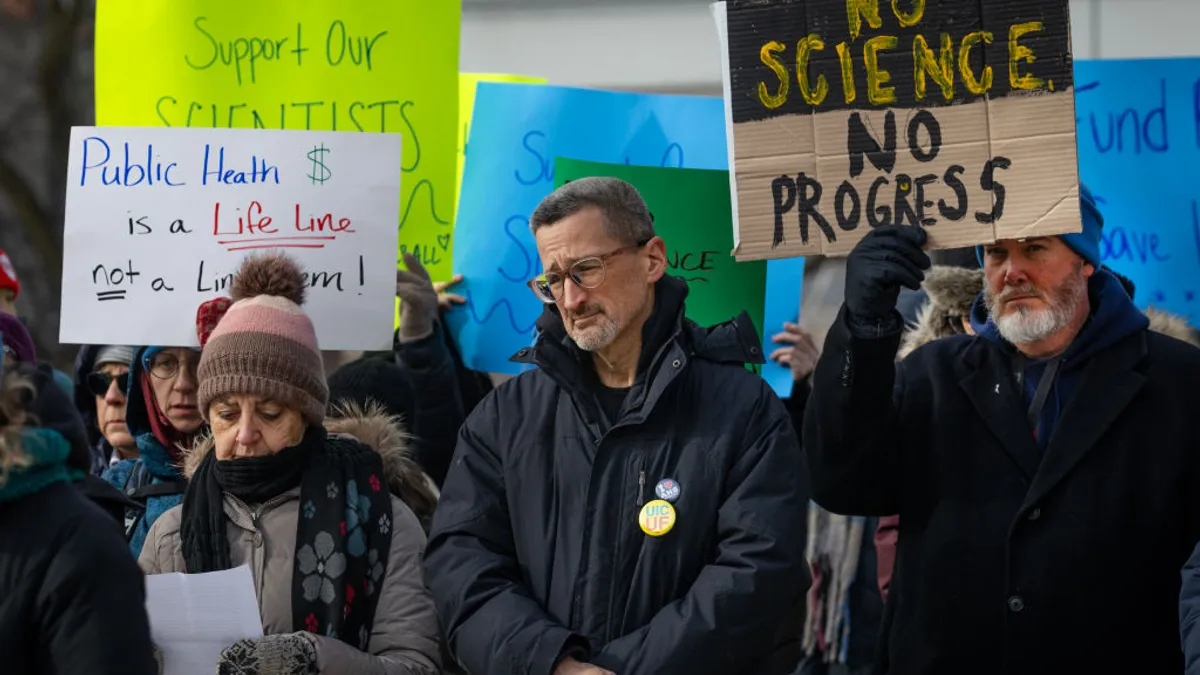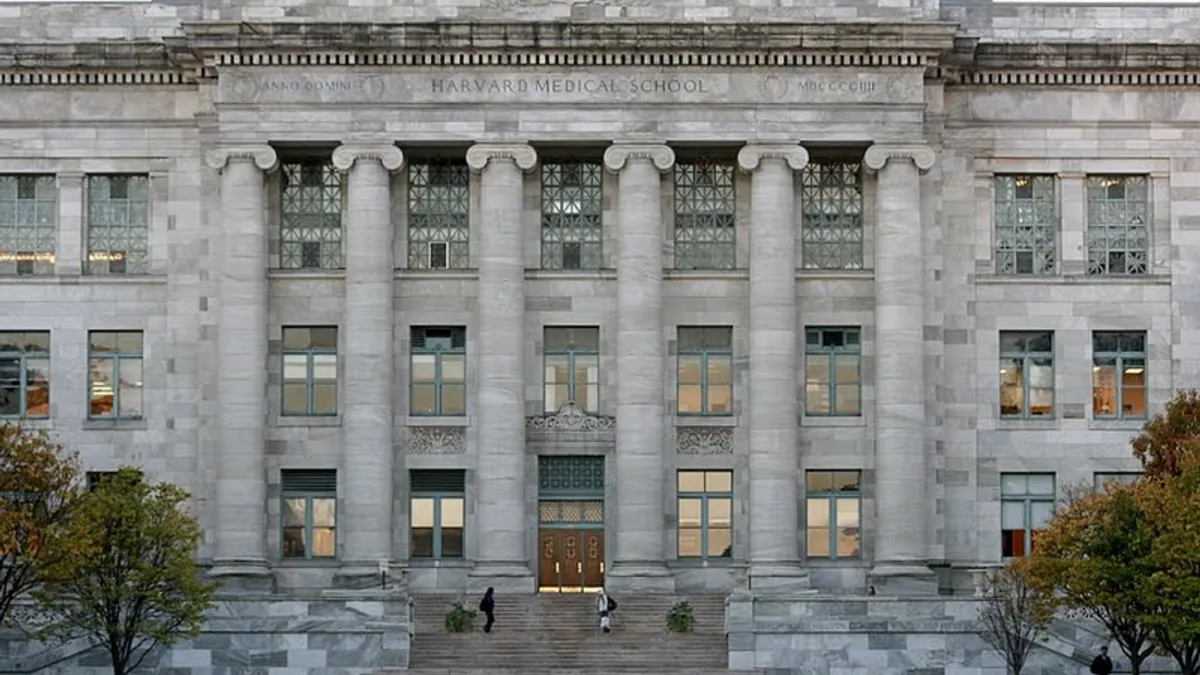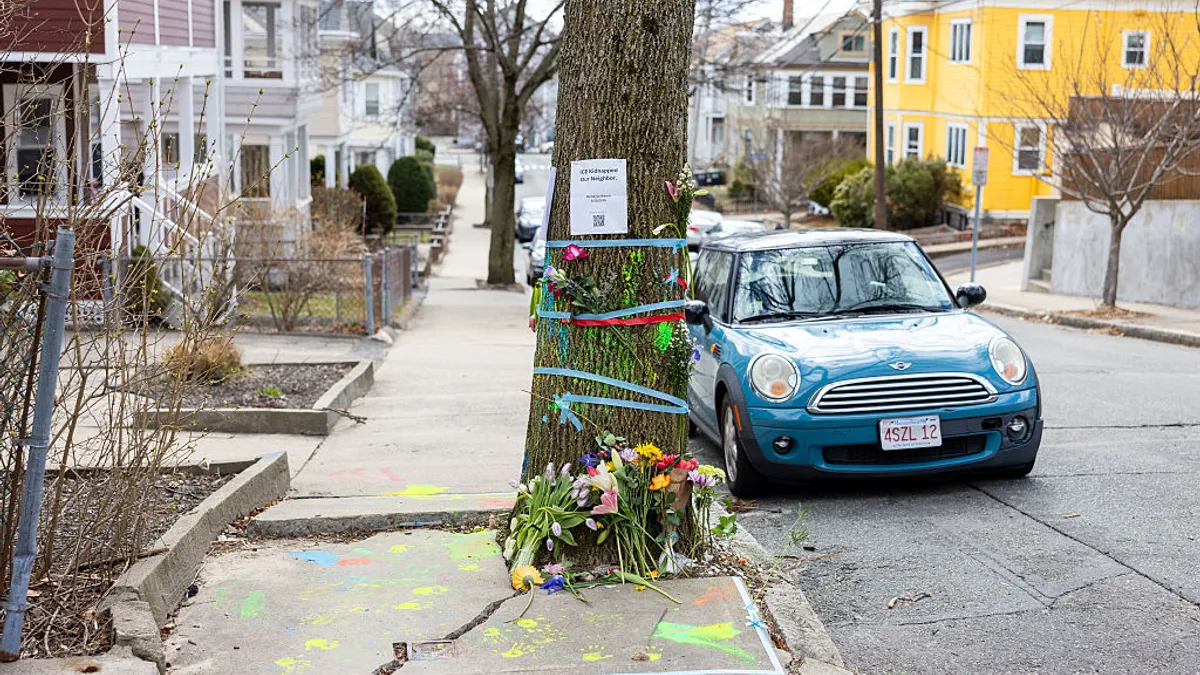WASHINGTON — On the 2024 campaign trail, then-presidential candidate Donald Trump accused the nation’s faculty of being “obsessed with indoctrinating America's youth” and declared, “The time has come to reclaim our once great educational institutions from the radical Left.”
His administration’s “secret weapon” in this conflict would be the accreditation system for colleges and universities.
“When I return to the White House, I will fire the radical Left accreditors that have allowed our colleges to become dominated by Marxist maniacs and lunatics,” he said in a July 2023 campaign video. “We will then accept applications for new accreditors who will impose real standards on colleges once again and once and for all.”
Earlier this week, officials and professionals from the accreditation system that Trump vowed to upend met in Washington, D.C., for the Council for Higher Education Accreditation’s annual conference to discuss the major topics facing the sector — not least among them being the second Trump administration that took office a week earlier.
Along with the wholesale replacement of accreditors that Trump promised, plenty of other aspects of accreditation work could change under the new administration and with a Republican majority in Congress. Here is a look at some of the big political and policy questions under discussion.
Working with a new Education Department
The U.S. Department of Education recognizes accreditors, which in turn vet and accredit institutions, rendering them eligible for Title IV federal financial aid, such as student loans and Pell Grants.
That makes the department’s relationship with accreditors of paramount importance to the latter group, and it would make the department the agent for enacting Trump’s policies.
“There will be — and we don't know the scope of it yet — efforts to use accreditors to advance the administration's policies, particularly around areas of DEI,” Jon Fansmith, senior vice president of government relations and national engagement at the American Council on Education, said during a panel Wednesday.
One of Trump’s campaign pledges was to remove “all DEI bureaucrats” from higher education. As a senator, Trump’s vice president, JD Vance, introduced a federal bill last year that would have barred accreditors from enacting DEI requirements at colleges. A bill with a similar aim passed the House last year, but died in committee in the Senate.
With the change in administration will come a new Education Secretary. Fansmith described Trump’s pick to head the Education Department, Linda McMahon, as “pragmatic.” He also said her stint as head of the Small Business Administration during Trump’s first term went “remarkably smoothly.”
“There are reasons to think that where she has weighed into the [higher ed] policy space, there's opportunities to work with her,” Fansmith added.
As for Trump’s stated desire to eliminate the department altogether? “Spoiler, the department won’t be abolished,” Fansmith said.
Jan Friis, CHEA’s senior vice president for government affairs, pointed out that the first bill proposing the elimination of the Education Department so far during the current House of Representatives term had no cosponsors.
Further attacks on DEI
Colleges across the country have faced a Republican-led crusade against their diversity, equity and inclusion efforts over the past few years — and those attacks are only poised to grow stronger under the Trump administration.
On the first full day of his presidency, Trump issued an executive order calling for agencies to identify organizations, including colleges with endowments worth over $1 billion, for potential investigations into their DEI work.
The mounting backlash against DEI means that higher education leaders will have to frame “compelling narratives” about their equity work to help people see what they’re doing and why, Debra Humphreys, vice president of strategic engagement at Lumina Foundation, told conference attendees Tuesday.
“How do we talk about all of that work in a way that more people can understand?” Humphreys said. “That's become harder.”
That’s because people who hear words like “equity” and “inclusion” often fall into two camps, Humphreys said.
“One, they have listened to all the weaponization of those words, and they think they are horrible things,” Humphreys said. “Or, they don’t know what we’re talking about. A big chunk of them do not know what we mean at all when we say equity.”
To counter those reactions, higher ed leaders should use plain language to describe initiatives and who they intend to help while avoiding “insider language” — which includes DEI. Leaders should also frame their initiatives in terms of shared values held by the public.
“There are some still out there that cut across all our differences,” Humphreys said. “Fairness is one of them, opportunities another one. I actually think freedom of thought and expression, which has become a very hot button thing, is a shared value in America.”
A harsher climate for immigration and international students
Trump’s first two weeks in office brought several shifts in immigration policy, including a directive from the administration that opens colleges to immigration raids and a newly signed law that requires federal immigration enforcers to detain migrants accused of certain crimes, including shoplifting and larceny.
More immigration policies could be coming, given Trump’s promise on the campaign trail to implement an expanded travel ban and fiery rhetoric aimed at other countries such as China, Colombia and Mexico.
Some of Trump’s policies could put colleges in uncomfortable positions, should they be the site of immigration raids. More broadly, Trump’s actions and messaging on immigration and other countries could make it harder to recruit international students, some said at the CHEA conference.
“It is as important for foreign students to be part of our system as it is for our students to be part of other systems,” Luis Maldonado, American Association of State Colleges and Universities’ vice president of government relations and policy analysis, told attendees Wednesday.
Maldonado gave an example of an AASCU exchange program for students from China studying at U.S. institutions, which he described as a “vital part” of international higher ed.
The Trump administration “shares a different set of values” and “wants to control who can access our institutions, and to what end are foreign students seeking when they enter and enroll in our institutions,” Maldonado said.
Uncertainty amid the funding freeze
On Wednesday, two days after the White House budget office issued a memo declaring a pause on potentially huge swaths of federal grants, loans and other aid, panelists noted the widespread confusion overtaking the higher ed world in its wake.
“The backlash across multiple levels of government seems to indicate that this was not done with a level of coordination and forethought that gives you comfort in how your government is functioning,” Fansmith said.
The administration rescinded the memo after a judge ordered it to halt the funding freeze. However, officials said the freeze was still in place, with White House Press Secretary Karoline Leavitt saying on X on Wednesday, “The President's EO's on federal funding remain in full force and effect, and will be rigorously implemented.”
Fansmith said at the panel, “It's easy to look at say, ‘This was unintended consequences, that they got too far over their skis and did something hastily.’ I don't find that especially reassuring, given the scale of what was being proposed.”






















